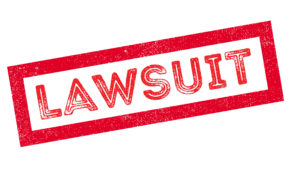Filing a Missouri Lawsuit

A Missouri lawsuit starts by filing a petition. A petition states the facts of a dispute, which are typically briefly described in chronological order in numbered paragraphs. The petition must state enough facts to show that the plaintiff has a viable cause of action against the defendant.
Breach of contract, for example, is a cause of action. A plaintiff filing a Missouri lawsuit for breach of contract must state facts demonstrating that plaintiff and defendant formed an enforceable agreement, that the defendant breached the agreement, that the plaintiff has been damaged as a result of the breach, and the amount of such damages. The court will have the authority to decide the case if such facts are sufficiently described in the petition.
Serving a Missouri Lawsuit
In most cases, a Missouri lawsuit cannot proceed until the defendant is personally served with a summons and the petition. A sheriff’s deputy or a special process server must typically place the summons and petition into the hand of the defendant. Once that occurs, the defendant has been served. (The person serving the summons and petition may drop it at the feet of a defendant who refuses to accept it.)
The summons tells the defendant what the defendant must do next. For example, if the petition was filed in an associate circuit court, the summons will tell the defendant when the defendant must appear in court. An associate circuit court summons also states that the plaintiff will get a default judgment if the defendant fails to appear in court at the time stated in the summons.
Filing an Answer to a Missouri Lawsuit
A summons issued from a circuit court typically tells the defendant that the plaintiff might get a default judgment if the defendant fails to file an answer to the petition within 30 days of the day on which the defendant is served with the petition. A defendant in an associate circuit court case is not required to file an answer but must file a statement of each defense (called affirmative defenses) the defendant has to the claims in the petition. A defendant in a circuit court case must typically file both an answer and affirmative defenses.
Filing Counterclaims
A defendant in either court may also file counterclaims against the plaintiff or even add other entities to the lawsuit. A party added to a Missouri lawsuit by the defendant is typically called a third-party defendant and the defendant is called the third-party plaintiff in relation to the third-party defendant. Further complicating the structure of the lawsuit, one defendant might sue a co-defendant. This is called a cross-claim. In that case, the defendant suing is called the cross-claim plaintiff and the defendant sued is the cross-claim defendant.
The party sued under a counterclaim, cross-claim, or third-party petition must typically file an answer and affirmative defenses to the petition asserted against them. The court might enter a default judgment against the party if the party does not file an answer within the time required. Often times, a party might amend its petition. This is done when the party needs to state things differently in its petition. When that occurs, each party against whom the amended petition is asserted must typically file an answer to the amended petition within a certain period of time or face the prospect of a default judgment.
This article is for general informational purposes only, and it is not intended as legal advice. You should not rely on this article as providing all of the information required in order to assert a viable Missouri lawsuit. Rather, you should retain legal counsel experienced in litigation to advise you about your cause of action.
Michael Sewell has successfully litigated numerous Missouri lawsuits since 2005. Prior to forming Sewell Law in 2015, Michael was a full-time litigator with the Clayton, Missouri law firm of Berger, Cohen, and Brandt. Please contact Michael at (314) 942-3232 or at michael@sewelllaw.net to discuss your litigation or other legal matters.
The choice of a lawyer is an important decision and should not be based solely upon advertisements.
© 2018 Sewell Law, LC


